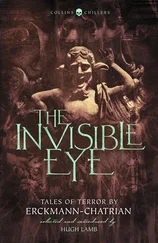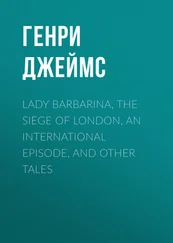My wife and children have returned from their holiday; the water has returned to the tanks, to the pipes, and to the taps. I stay at home and rarely go out, nor do I know how Gemulah has been faring with Gamzu since he took her back. Since, on balance, goodness outweighs evil, I assume that she has made her peace with him, and that having done so, her own language has returned to her. Perhaps she even allows herself to sing, and once more her voice stirs the heart like the voice of the bird Grofit; and as you know, Gamzu loves nothing so much as Gemulah’s voice lifted in song. Why then did Gamzu lay his hand over her mouth to silence her? Because songs are conjoined, they are linked up one with another, the songs of the springs with the songs of high mountains, and those of high mountains with the songs of the birds of the air. And among these birds there is one whose name is Grofit; when its hour comes to leave the world, it looks up to the clouds and raises its voice in song; and when its song is ended, it departs from this world. All these songs are linked together in the language of Gemulah. Had she uttered that song of Grofit, her soul would have departed from her, and she would have died. For this reason Gamzu stopped up her mouth and preserved her soul that it might not depart.
I stay at home, then, and continue with my work, whether it be little or much. But when the sun sets I lay my work aside. “Behold that which I have seen: it is good, it is comely”—and so forth— “to toil under the sun,” for so long as the sun shines upon the world, it is good, it is comely in the world. If I have a little strength left when my work is done, I go for a walk. Otherwise, I sit alone in front of my house or stand in the window and watch how the day passes and the night comes, how the stars take their places in the sky and the moon rises.
The moon and stars have not yet come out. But the sky gleams with its own light, burning from within, and a blue-grey glow, like the bloom on a ripe plum, hovers between heaven and earth, while the whole world is alive with the chirping of countless crickets. Not far from my house there is a commotion among the trees. It continues until it sounds like a forest on a stormy night, like a sea in tempest. I wonder if something is not astir in the world.
I have stood alone and looked behind the back of the world; and because so much has already happened, I have looked away from events that are at present taking shape. One of those past happenings was the affair of Gamzu and Gemulah: the story of a man who comes home and does not find his wife; going to the south, turning to the north, turning turning, he goes on, and at the last finds her in a house where he chances to be. But what truly amazed me was this: with my own eyes I had seen Gamzu snatch his wife away, and yet it seemed to me that it was only a story, like the one he himself had told me, of how on one occasion dances were held, and Gadi Ben Ge’im was about to seize Gemulah, and Gamzu forestalled him. There is no event whose mark has not gone before it. Such is the parable of the bird: before it flies, it spreads its wings and they make a shadow; it looks at the shadow, raises its wings, and flies away.
The moon has not yet appeared, but she is about to rise, and a place is set aside for her in the sky. Clouds that seemed a portion of the sky itself are parted now, moving this way and that on their course, while the moon ripens towards her rising. Happy is he who can make use of her light without being touched by it.
My thoughts turn to those who long for the moon. And from thoughts of the moon, to thoughts that are bound up and conjoined with the way earth binds us. And from earth to man. To those whom the earth welcomes, and those who wander about like the shades of night. I do not refer especially to that young couple who had not found a home for themselves; nor especially to those who left the country and, on their return, found that the land had become estranged from them. Nor do I mean in particular Greifenbach and his wife, who went abroad to take a rest from the strain of life in our country. I refer to all men who are in the grip of this earth.
Greifenbach and his wife are about to return. Their cleaning woman, Grazia, told me this; a picture postcard from Mrs. Greifenbach had come for her. I know this, too, from the contents of a card they wrote to me. And since they are about to arrive, I have been to see how their house is faring.
Their house is locked up. No one has broken in. I do not know if Ginat is in his room or not. At any rate, the window that opened for Gemulah is now closed. When the Greifenbachs return to Jerusalem, they will find everything securely in its place.
Next morning when I picked up the newspaper to see if the Greifenbachs’ return was announced, I read that a Dr. Gilat was dead. Since I was not acquainted with any person of that name, I did not linger over the news. But my heart sank, and when a man’s heart behaves irregularly, evil things begin to take shape. I began to wonder if there was a misprint and “l” had been substituted for “n.” Once a man enters into evil speculations, they do not leave him. I took up the paper again and saw the letter “l” standing out plainly in the dead man’s name, yet my eyes which could see the “l” also saw “n,” as if the “l” had been twisted and turned into an “n.” The matter troubled me so much that I got up and went out.
I looked at the announcements on the walls but found no declaration of his death. Ginat did not hold an official post and was not known in town; there was nobody to publicize his death on the billboards. But I learned from another source that he was indeed dead, and how his death came about.
I shall start at the beginning. I was walking the streets and reflecting to myself: If it was Ginat, why was the name written as Gilat? And if it was indeed Gilat, why do I have these forebodings?
Old Amrami, leaning upon his granddaughter, came across me and said, “Are you going to the funeral?”
I nodded and said that I was.
“What a strange case!” he said. “A woman who can’t move from her bed meets her death on a roof.”
I looked at him long and hard without knowing what he meant.
He went on to say, “Mysterious are the ways of God; who can understand them? A man risks his life to save another life in Israel, and the end of it is, he falls and is killed. So now we are not going to one funeral, but to two. To the funeral of Gamzu’s wife, and to the funeral of Dr. Ginat.”
Amrami’s granddaughter Edna added, “The newspapers didn’t report this, but eyewitnesses say that last night a gentleman went out of his room and saw a woman climbing up onto the roof. He rushed up to save her from danger, the parapet collapsed, and they both fell to their death.”
So we walked, Amrami and Edna and I, until we reached the hospital where the bodies of Gemulah and Ginat had been brought. The hospital was closed. At the gate sat the porter, looking at passers- by, daydreaming that they were all asking his permission to go inside and were all being refused. But his luck was out; not a man asked if he might enter the hospital, but all went into the open courtyard where the mortuary stood.
At the side of the courtyard, standing apart, was the patients’ laundry. Small as it was, it performed a service to the dead, for it fulfilled the obligation of hospitality by admitting visitors. Alongside it, on a broken bench, sat three members of the burial society, professional watchers of the dead, while a fourth stood up behind them and rolled himself a cigarette. He saw Amrami and me and attached himself to us, telling us that he had sat all night beside the corpse, reciting psalms for the dead. And who, he wanted to know, was going to pay him for saying those psalms? He could tell I was an honest man; he would grant me the mitzvah of paying him.
Читать дальше












